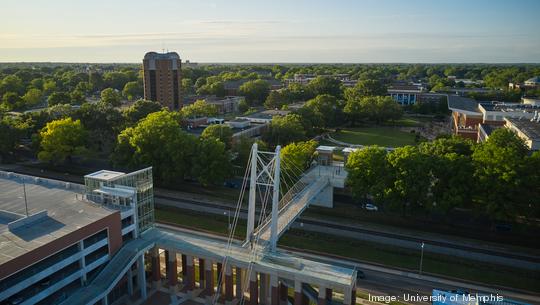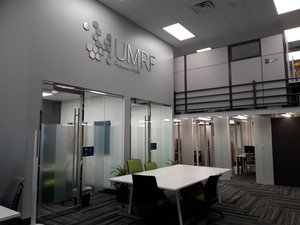
Recently, the National Science Foundation (NSF) has become increasingly focused on translational value. In other words, the agency wants to see how the research it is funding is impacting industry and people across the country.
With this a priority, it announced the Regional Innovation Challenge last summer, providing universities and community organizations the chance to apply for large-scale grants that would help them bolster innovation ecosystems and move new technologies into the market.
University of Memphis was quick to take advantage of the opportunity. And buoyed by a coalition of around 75 partners in 43 counties across three states — Tennessee, Mississippi, and Arkansas — it submitted a proposal for a $160 million grant in January.
If received, more than 80% of the funds are set to go to its partners, and the money could have a major effect in areas throughout the Delta.
'A sea of change'
For example, many of the region’s community colleges and historically Black colleges and universities (HBCUs) are part of the coalition, and the grant could provide them with tech transfer infrastructure that helps them introduce new technologies to society. It could bring seed funding to entrepreneurs and university researchers as they look to commercialize their ideas and lead to additional scaled workforce training that’s accessible to people throughout the region.
“With the grant, it's a sea change. It’s a tremendous transformation of the innovation capacity,” said Cody Behles, U of M’s director of research development and innovation. “It looks at, ‘How do we take innovation and the innovation capacity of the region and move that capacity to create sustainable community wealth for the whole region?'"
Whether the U of M and its coalition of partners receive the grant remains to be seen, as recipients aren’t expected to be announced until the fall. But even if U of M isn’t awarded the funds, its leaders are intent on keeping its network of partners together and pushing forward with the work they’ve discussed.
Why? Because, as Behles put it, “We have to.”
“If we don't address problems now, then in 50 or 100 years, a lot of this region is going to look very different, and we're not going to have the capacity to address the challenges,” he said. “We're really at a tipping point. And collaboration is key to addressing that.”
Building sustainable community wealth
To ensure this collaboration continues, U of M is holding a conference from June 2-3 at the FedEx Institute of Technology, with its coalition of partners involved in the grant proposal set to attend.
These attendees come from multiple sectors, too. One panel, for instance, is set to include representatives from the Black Business Association of Memphis (BBA), Go Forward Pine Bluff — an entrepreneurship support organization in Pine Bluff, Arkansas — Hope Credit Union, and Jackson State University.
And to Behles, this variety is important.
“It shows the intersections of different sectors,” he said. “You've got business with the BBA. You've got entrepreneurship with go forward Pine Bluff. You've got finance and capital with Hope. And then you've got higher ed with Jackson State. All of those are key parts of building sustainable community wealth through innovation.”
Goals of the conference
The conference is focused on three major industries — logistics and supply chain, agtech, and medical devices — which were also the concentrations of the grant. And the hope is that the conference at the U of M will help build research and industry collaborations, strengthen connections between regional institutions, and form teams that can apply for future grant applications. Economic justice is also set to be a topic of discussion.
“We're really trying to think about things systemically, and how we overcome challenges that have held back this region for so long,” he said.
The plan to form grant application teams at the conference was emphasized by Behles, as grants can play a significant role in improving communities. But for many, they often feel out of reach.
“You talk to rural communities across the region, and they'll tell you that they don't have the infrastructure to apply for grants. They don't have grant writers, they don't have the resources,” Behles said. “But the only way that you can move the region and move communities forward is through grant applications. That's how our innovation ecosystem is set up. That's how you make change. So, we are enabling that through the collaboration that we're building at this conference."









